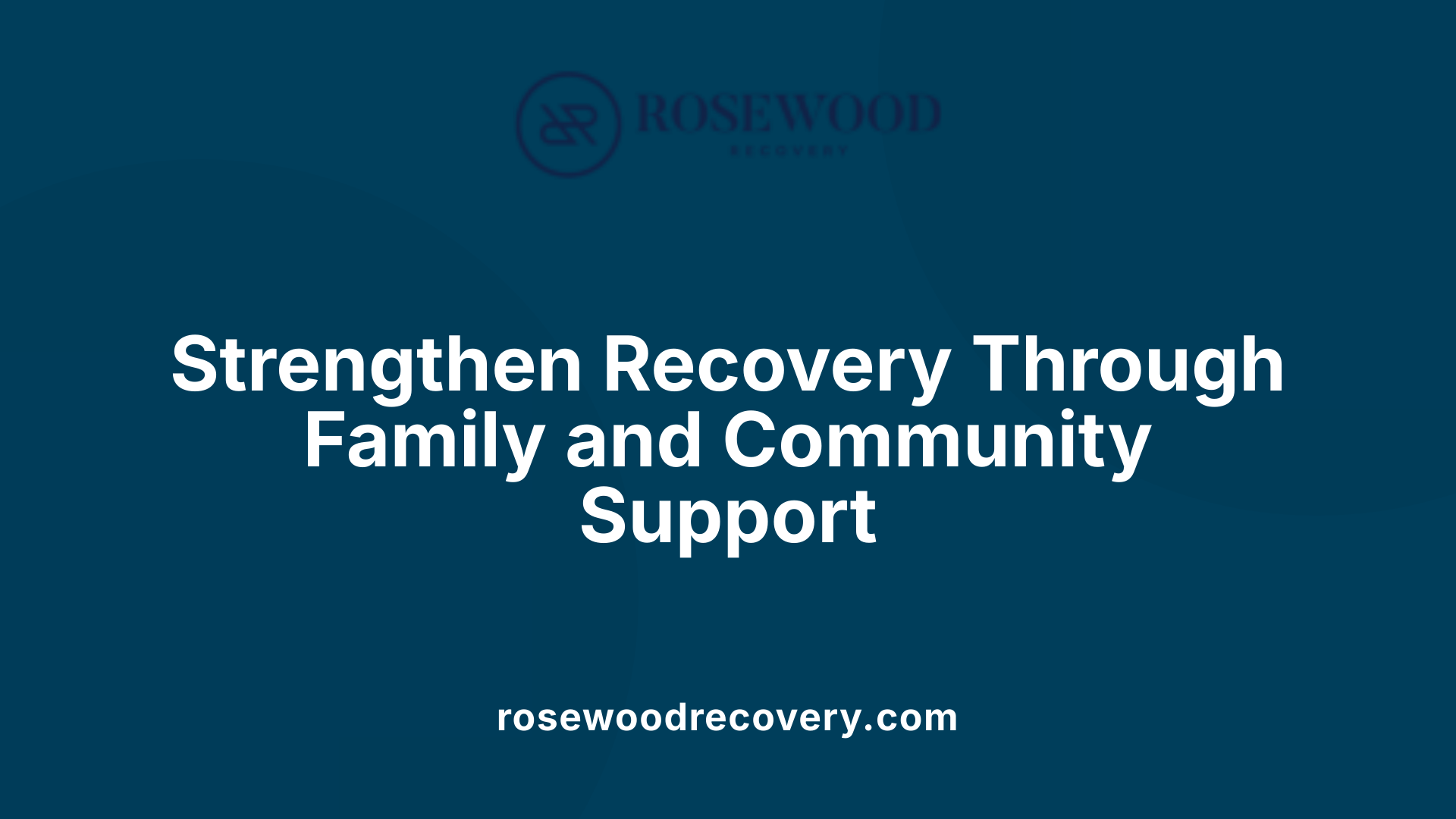Understanding the Advantages of Outpatient Therapy in Addiction and Mental Health
Outpatient rehab programs have become increasingly popular for individuals seeking effective recovery options that fit into their lifestyles. This article explores the various benefits of attending therapy while enrolled in outpatient treatment, emphasizing how personalized, flexible care can significantly enhance recovery outcomes for those battling addiction and co-occurring mental health issues.
The Core Goals of Outpatient Therapy in Recovery

What is the goal of outpatient therapy in addiction and mental health treatment?
Outpatient therapy aims to support individuals on their journey to recovery by offering flexible, personalized care. It focuses on helping clients make positive behavioral changes, prevent relapse, and effectively manage co-occurring mental health conditions such as depression or anxiety.
A central objective is to develop healthy coping strategies that individuals can apply in their daily lives. Through evidence-based therapies like Cognitive Behavioral Therapy (CBT) or Dialectical Behavior Therapy (DBT), clients learn to handle stress, emotional triggers, and environmental challenges.
Outpatient programs also prioritize maintaining daily routines—such as work, school, and family responsibilities—while seamlessly integrating treatment. This approach encourages real-world application of new skills, fostering sustainable recovery.
Engagement with family and social support is vital. Many programs include family counseling and encourage loved ones' participation, creating a supportive environment that enhances treatment outcomes.
Medication management, psychoeducation, and ongoing monitoring form part of the comprehensive care. These strategies collectively aim to reduce substance use, build emotional resilience, and promote psychological well-being.
Ultimately, the goal of outpatient therapy is to achieve lasting stability and improve overall quality of life by empowering individuals to maintain their recovery in their natural environment.
Flexibility as the Foundation for Effective Treatment
How can outpatient therapy help individuals maintain their recovery progress while managing everyday commitments?
Outpatient therapy plays a vital role in helping individuals stay on track with their recovery while managing daily responsibilities. Its main advantage is flexible scheduling, which allows clients to attend therapy sessions at times that do not interfere with work, school, or family commitments. This means people can continue their education, maintain employment, and care for loved ones without sacrificing their treatment.
Regular sessions, whether they are individual counseling, group therapy, or medication management, provide ongoing support and accountability. Personalized treatment plans are created to suit each person's specific needs, incorporating evidence-based therapies like CBT, DBT, or motivational interviewing. These approaches help develop practical coping strategies that can be applied immediately in everyday life.
Moreover, outpatient programs emphasize building robust support networks through family involvement, peer support groups, and community resources. Patients are encouraged to practice skills learned in therapy—such as stress management, trigger avoidance, and emotional regulation—in real-world settings. This real-life application reinforces their ability to maintain sobriety outside the clinical environment.
In summary, outpatient therapy enables individuals to integrate recovery seamlessly into their routines. Its adaptable structure fosters continuous progress, helping maintain long-term sobriety while respecting personal and professional obligations.
Advantages Over Inpatient Care
What are the advantages of outpatient rehab and therapy compared to inpatient care?
Outpatient rehab and therapy provide several benefits that make them an appealing choice for many individuals seeking help for substance use or mental health issues. One of the main advantages is the lower cost. Without the need for room and board expenses typical of inpatient programs, outpatient treatment often costs significantly less, making it more accessible to a broader range of people.
Living in a familiar environment is another key benefit. Patients can continue living at home, which helps sustain their daily routines, responsibilities, and connections with family and friends. This continuity supports ongoing social and emotional support, creating a stable foundation for recovery.
Additionally, outpatient programs foster real-world skill development and application. As clients participate in therapy sessions and apply coping strategies in their daily life, they learn how to manage triggers, stress, and personal responsibilities more effectively. This practical experience can improve long-term outcomes.
Flexibility is also a significant factor. Outpatient programs often allow individuals to schedule sessions around work, school, or family commitments. This flexibility reduces the disruption to daily life and encourages engagement in treatment.
Furthermore, staying integrated within their community helps individuals maintain social connections and support systems vital for maintaining sobriety. Family participation in therapy can also enhance motivation and provide additional accountability.
However, it's important to recognize that outpatient care is better suited for those with mild to moderate issues and relies heavily on the client's commitment and support environment. For severe cases, inpatient treatment's 24-hour supervision and safety measures may still be necessary.
Overall, outpatient rehab combines affordability, convenience, and real-world applicability, making it a practical and effective option for many on their journey to recovery.
Therapeutic Approaches and Their Benefits
 Outpatient rehab programs employ a range of evidence-based therapies designed to tailor treatment to individual needs. Among the most common are Cognitive Behavioral Therapy (CBT), Dialectical Behavior Therapy (DBT), Motivational Interviewing (MI), and Eye Movement Desensitization and Reprocessing (EMDR). Each of these therapies has distinct advantages. For example, CBT helps patients identify and alter negative thought patterns and behaviors, fostering healthier coping mechanisms. Meanwhile, DBT emphasizes emotion regulation and mindfulness, which are particularly useful for managing intense feelings.
Outpatient rehab programs employ a range of evidence-based therapies designed to tailor treatment to individual needs. Among the most common are Cognitive Behavioral Therapy (CBT), Dialectical Behavior Therapy (DBT), Motivational Interviewing (MI), and Eye Movement Desensitization and Reprocessing (EMDR). Each of these therapies has distinct advantages. For example, CBT helps patients identify and alter negative thought patterns and behaviors, fostering healthier coping mechanisms. Meanwhile, DBT emphasizes emotion regulation and mindfulness, which are particularly useful for managing intense feelings.
Therapies in outpatient settings are typically delivered through multiple formats, including individual counseling, group therapy, and family sessions. Individual therapy provides personalized support, allowing clients to explore personal issues deeply. Group therapy offers peer support and shared learning experiences, vital for fostering motivation and a sense of community. Family therapy involves loved ones to improve communication, rebuild trust, and create a stronger support network.
Addressing underlying issues is a core component of outpatient treatment. Therapies focus not only on reducing substance use but also on tackling emotional and behavioral factors that contribute to addiction, such as trauma, mental health conditions, or relationship problems. Developing effective coping skills is essential for long-term success. Patients learn strategies to handle triggers, cravings, and stress, helping them sustain sobriety outside the treatment environment.
Beyond traditional talk therapies, holistic and supportive services are frequently integrated. These can include medication management when appropriate, art and music therapy, mindfulness practices, and lifestyle coaching. Such approaches aim to promote overall wellness and resilience, creating a comprehensive support system.
In conclusion, outpatient rehab's diverse psychological therapies and supportive services deliver a flexible, personalized approach that addresses both symptoms and root causes of addiction. They foster skill-building and emotional growth, empowering individuals to maintain recovery and improve their quality of life over the long term.
Supporting Recovery with Group and Family Engagement
 Social support plays a crucial role in outpatient addiction treatment by fostering motivation and accountability. Peer groups like mutual support organizations, such as Alcoholics Anonymous (AA) or Narcotics Anonymous (NA), provide a sense of community and shared experience, which can motivate individuals to stay committed to their recovery journey.
Social support plays a crucial role in outpatient addiction treatment by fostering motivation and accountability. Peer groups like mutual support organizations, such as Alcoholics Anonymous (AA) or Narcotics Anonymous (NA), provide a sense of community and shared experience, which can motivate individuals to stay committed to their recovery journey.
Family involvement is equally important. Family therapy and education help loved ones understand addiction, improve communication, and create a supportive environment that promotes long-term sobriety.
Participation in community activities and support groups offers opportunities for individuals to build new social networks, reinforce coping skills, and reduce feelings of isolation.
| Aspect | Description | Benefits |
|---|---|---|
| Social Support | Peer groups and community involvement | Boosts motivation, accountability, and social connectedness |
| Family Therapy | Education and counseling for family members | Enhances understanding, improves communication, and provides emotional support |
| Community Engagement | Activities and support groups | Strengthens coping skills and fosters a sense of belonging |
| Mutual Support Groups | 12-step programs and peer-led groups | Promote peer encouragement, shared experiences, and ongoing accountability |
Attending therapy during outpatient rehab offers several advantages. It provides a flexible setting where individuals can manage daily responsibilities while receiving tailored support for their mental health and substance use issues. These programs integrate various therapeutic approaches such as cognitive-behavioral therapy (CBT), dialectical behavior therapy (DBT), and family counseling, adjusting treatment as needed.
The strong emphasis on community and family participation helps reinforce positive behaviors and builds a sustainable recovery foundation. The combination of professional treatment, peer support, and family involvement significantly improves treatment outcomes and supports long-term recovery success.
Relapse Prevention and Long-term Support
Strategies to recognize and manage triggers are essential in maintaining long-term recovery. Outpatient therapy emphasizes identifying the personal cues, environmental factors, or emotional states that may lead to cravings or relapse. Clients are trained to develop coping mechanisms such as mindfulness, stress management, and avoidance techniques. Recognizing early warning signs allows individuals to seek help proactively before urges escalate.
Ongoing therapy and community support are vital components of sustained recovery. Regular participation in counseling sessions, support groups like Alcoholics Anonymous (AA) or Narcotics Anonymous (NA), and peer networks offer continuous encouragement and accountability. These platforms provide a safe space to share experiences, challenges, and successes, reinforcing commitment to sobriety.
Alumni programs and sober networks play a significant role in long-term support. Many outpatient centers offer alumni groups, reunions, or mentorship opportunities that help individuals stay connected with others who understand their journey. Such networks foster motivation, provide practical advice, and help navigate life’s challenges without substance use.
Developing resilience and life skills is fundamental for enduring recovery. Outpatient programs often focus on building personal responsibility, emotional regulation, problem-solving, and healthy relationship habits. Strengthening these skills equips individuals to handle stress, social pressures, and setbacks confidently. Ultimately, a combination of trigger management, community involvement, and resilient skills creates a robust framework for long-term sobriety.
Therapeutic Modalities and Evidence-Based Strategies
What therapies are commonly offered in outpatient rehab, and what benefits do they provide?
Outpatient rehab programs typically include a variety of therapeutic approaches designed to address both substance use and co-occurring mental health conditions. Prominent among these are cognitive-behavioral therapy (CBT), dialectical behavior therapy (DBT), motivational interviewing (MI), eye movement desensitization and reprocessing (EMDR), and holistic or alternative therapies.
CBT helps individuals identify and challenge negative thought patterns and behaviors, fostering healthier coping mechanisms and reducing the likelihood of relapse. DBT focuses on emotional regulation, distress tolerance, and interpersonal effectiveness, making it especially beneficial for those with borderline personality disorder or intense emotional responses. MI emphasizes motivational enhancement, encouraging clients to strengthen their commitment to change.
In addition, EMDR is used primarily to treat trauma or post-traumatic stress disorder (PTSD), helping clients process distressing memories in a safe and structured way. Holistic approaches, such as mindfulness and relaxation exercises, complement traditional therapies by promoting overall mental wellness.
These therapies are often combined with medication-assisted treatment (MAT) when appropriate, to help reduce cravings and support sobriety. Various programs might also incorporate family counseling, group therapy, art therapy, and telehealth services, providing a comprehensive approach tailored to individual needs.
The benefits of these evidence-based therapies include personalized treatment, greater engagement in recovery, and the development of practical skills to handle real-life triggers. They also foster a supportive environment where clients can heal emotionally and build resilience. The combination of therapies in outpatient settings supports sustainable long-term recovery, helping individuals regain control of their lives while maintaining daily responsibilities.
The Role of Community and Family Support Systems
 Engaging family members in therapy and education is a vital part of outpatient treatment. When families are involved, they learn about addiction and mental health challenges, which helps reduce misunderstandings and build empathy. Family therapy sessions can improve communication, support behavior change, and create a stronger home environment conducive to recovery.
Engaging family members in therapy and education is a vital part of outpatient treatment. When families are involved, they learn about addiction and mental health challenges, which helps reduce misunderstandings and build empathy. Family therapy sessions can improve communication, support behavior change, and create a stronger home environment conducive to recovery.
Participation in recovery groups like Alcoholics Anonymous (AA) and Narcotics Anonymous (NA) is also encouraged. These groups provide social support, shared experiences, and motivation from others who understand the journey. Connecting with peers who are facing similar struggles can boost accountability and foster a sense of belonging.
Building a supportive environment at home and in the community involves creating routines that promote sobriety, such as healthy habits, stress management, and avoiding triggers. Families can support ongoing recovery by fostering open communication, setting boundaries, and encouraging participation in therapy and support groups.
Addressing barriers with community resources is essential for long-term success. Many communities offer services like transportation assistance, housing support, and employment programs that help individuals stay engaged in their recovery plan. These resources make it easier to overcome environmental challenges that could hinder progress.
Overall, the integration of community and family support within outpatient programs enhances treatment adherence, maintains motivation, and provides a safety net for individuals navigating the complexities of addiction and mental health recovery.
Long-Term Recovery and Aftercare Planning

What is the goal of outpatient therapy in addiction and mental health treatment?
The primary goal of outpatient therapy is to support individuals in maintaining their recovery journey by offering personalized, adaptable care. It aims to foster behavioral changes, prevent relapse, and manage co-occurring mental health conditions effectively. Through a combination of evidence-based therapies, medication management, psychoeducation, and social support, outpatient programs help clients build healthy coping skills and enhance emotional well-being.
An essential aspect of these programs involves engaging family members and social networks to create a strong support system. The ultimate objective is to help individuals achieve long-term stability, reduce substance use, and experience an improved quality of life.
How can outpatient therapy help individuals maintain their recovery progress while managing everyday commitments?
Outpatient therapy provides the flexibility needed for busy lives, enabling individuals to balance recovery with daily responsibilities such as work and family. Regular sessions, ranging from individual counseling to group support, are scheduled around personal routines, making ongoing treatment feasible without major disruptions.
It also emphasizes developing personalized care plans, incorporating proven therapeutic approaches, and equipping individuals with practical coping strategies. These tools enable clients to handle triggers and stressors in real-world environments effectively.
Furthermore, outpatient programs promote the cultivation of support networks, strengthen communication skills, and teach time management. All these elements work together to help individuals sustain their progress in recovery while continuing to fulfill their personal and professional roles.
More Information
For those interested in exploring further, searching for "Long-term support and relapse prevention in outpatient treatment" can provide additional resources and community insights. The focus remains on continuous care, relapse avoidance, and building resilience, ensuring recovery is maintained well beyond initial treatment phases.
Fostering Sustainable Recovery through Continuous Support
Incorporating therapy into outpatient rehab is a vital component of successful long-term recovery. The tailored, flexible, and comprehensive approach allows individuals to address their unique needs while maintaining their life routines. Engaging in evidence-based therapies, family and community support, and ongoing aftercare enhances the chances of achieving and sustaining sobriety. As outpatient programs continue to evolve, their role in empowering individuals with the skills and resilience necessary for lasting recovery becomes increasingly significant, reaffirming the importance of therapy within outpatient rehabilitation.
References
- The Benefits of an Outpatient Therapist for Mental Health | Rehab
- Benefits of Outpatient Substance Abuse Treatment - HRI Hospital
- Outpatient Rehab for Drugs & Alcohol Near You
- Does Outpatient Drug Rehab Work? A Look at Effectiveness & Benefits
- Outpatient Treatment: Definition, Properties, Usage, Advantage And ...
- Chapter 5—Specialized Substance Abuse Treatment Programs - NCBI
- What Is the Benefit of an Intensive Outpatient Program?
- Outpatient Addiction Treatment: Flexibility, Types, Benefits
- Outpatient Rehab - Types, Symptoms, & Therapies - NJ




